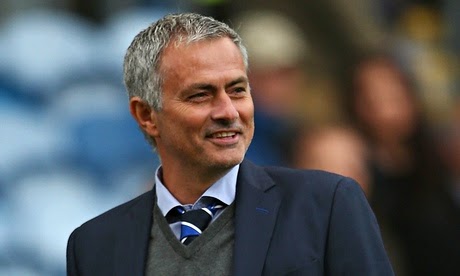NIGERIA: Is there a reason for Keshi to continue?
With the uncertainty hanging over the Super Eagles hotseat, we examine the case for Keshi's continued stay
ANALYSISBy Solace Chukwu
“Will he or will he not?” is the existential question of Nigerian football right now. The man in question:Stephen Keshi, the Big Boss, the coach who ended two decades of hurt on both the African and global stages.
His decision to seemingly call it quits with the national team in the aftermath of Nigeria’s elimination from the World Cup at the hands of France was a fierce body-blow. Once the dust had settled on the Estadio Mane Garrincha turf, it was clear that the Super Eagles had not done altogether badly. Whether or not the team could have done better though, at least on the day, is open to debate. Les Bleus were there to be had, and their lacklustre showing in the next round against Germany served to highlight this.
Here are a two major reasons why Keshi must renew with the NFF, and fast.
Is there more to come from the Big Boss?
He has not delivered on his promise
The Big Boss has long promised to give Nigeria a team for the future, one which the country would be proud of. His template is the 1994 vintage, which he had been a part of. He also pledged to return the Super Eagles to a style based on pace, power and width.
Fast forward thirty months, and one cannot say with any certitude that Keshi has fulfilled any of these self-imposed targets. He has blooded the likes of Godfrey Oboabona, Kenneth Omeruo, Ogenyi Onazi and Juwon Oshaniwa, but there is so much young talent yet to be unearthed and promoted, especially with gaps opening up in the squad.
Joseph Yobo has played his last and retired a deserving centurion, Osaze Odemwingie’s last-hurrah was memorable in patches, Vincent Enyeama is said to be considering his future.
There remains a lot of work to be done yet.
While this team has restored Nigeria to the acceptable minimum of a Round of 16 place, it will not be remembered with particular pride. The 1994 team were trailblazers, both in terms of style and results. Four years later, the Super Eagles reached the second round in France, but are not regarded nearly as highly. He has given us a steady team, not so much one to inspire nostalgia.
In terms of style, his team has delivered piecemeal, but remains somewhat undefined. Against Cote d’Ivoire at the last Cup of Nations tournament, the team played with patient build-up from the back and a slow tempo. At the Confederations Cup, the tempo was higher but the team was less sturdy. At the World Cup, the team favoured a counter-based strategy.
The result of this indecision has been the tendency for the team to start slowly at tournaments, before gathering steam. It has worked nicely so far (with the exception of the Confederations Cup), but it is far from ideal.
An exit has potential to rock the boat
The qualifiers for the 2015 Afcon begin in September.
South Africa (mooted as a Keshi suitor, ironically) and Sudan are unlikely to pose too much of a challenge on the face of it, but the scenario if a change of manager becomes necessary may throw a spanner in the works.
First off, the proximity of the qualifiers means that whoever comes in has his hands tied. He cannot be his own man, or stamp his authority on the team in any meaningful way. This team is very much Keshi’s, and has to continue to function as such.
The best solution possible would be to appoint someone on an interim basis, at least until after the Afcon next year. Who would be unambitious enough to take such a contract though? No coach worth his salt would not want the job on a permanent basis, and the Nations Cup in Morocco would be the perfect audition. How do you audition with a team that is not yours?
Granted, a coach is found who is willing to go along with this arrangement. What then after the tournament? It is worth remembering that the Super Eagles are defending African champions, and a credible defence is a must. If the team does not retain the crown (unrealistic, yes, but this is the NFF), the interim manager will surely be let go. So begins the search for a new manager, amid calls for an overhaul of the team.
Whichever way you look at it, there is no logical argument for Keshi to leave. It is a shame that he has had to work within the sort of strictures he complained about: no official residence or means of transport, and having to pay his assistant out of his pocket. That said, for the good of Nigerian football, a meaningful resolution must be found.
Otherwise, Keshi may see the legacy he has struggled to build come crumbling down.



Comments
Post a Comment